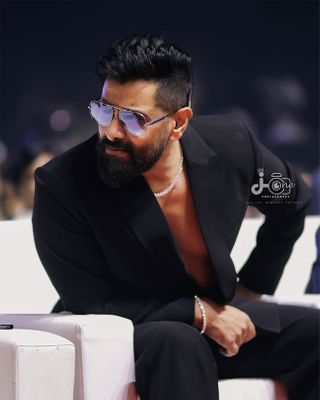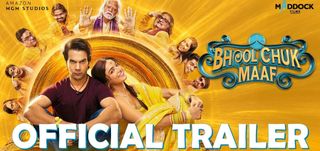Road Movie Review
In a Ram Gopal Varma film, the only predictable factor is the unpredictable.
Like the barren sand-swept highway on which Road's" lovebirds Vivek Oberoi and Antara Mali take off for a runaway marriage, one never knows what lies ahead.
Director Rajat Mukherjee takes viewers for a ride that one isn't likely to forget in a hurry. He sweeps one into the vortex of disturbingly implosive violence on a lonely and stark highway in Rajasthan.
As the defiant lovers Laxmi (Antara Mali) and Arvind (Vivek Oberoi) zip off to the accompaniment of screaming wheels and wailing guitars, one sits up in anticipation.
The what-next feeling never goes away as the lead pair's life on the road gets overtaken by a very normal-seeming stranger Babu (Manoj Bajpai) who thumbs a ride from Arvind and Laxmi and then takes them through a traumatic maze of adventures.
The film uses the barren landscape to great advantage. There's no assuaging greenery, just virile rust and brown frames.
First-time cinematographer Sudeep Chatterjee shoots the hinterland with stark grace. The bleak beauty of the frames echoes the incendiary tensions of the Spaghetti Westerns of Sergio Leone.
The three characters trapped in a lethal game of catch-me-if-you-can blend into the scenario with effortlessness. In most Hindi mainstream films, the principal players stand a little apart from the landscape in a glamorous enclave. In Road, the actors seem to fully belong to the world that they inhabit.
It's a bleak and barren world punctuated by unexpected spurts of humour.
Theatre actor Makarand Deshpande (who did the narration in Varma's Company) is a mass of bewildered synergy playing a truck driver fascinated by Sunny Deol in Gadar. Through such characters, Varma's cinema constantly draws attention to and deflects from formulistic conventions.
The most interesting incidental character is Rajpal Yadav who plays a film-fixated petrol pump attendant. After Manoj roughs him up, he vows never to watch director Sanjay Leela Bhansali's films again.
The theme of The Intruder recurs in Ram Gopal Varma's cinema. The film's deceptively casual mode of operation adds to its implosive tension.
Manoj as the intruder Babu is more controlled and in charge of his character's karma than ever before. Very little is said about the character's antecedents except when he begins to open up before his captive. When Babu confides in Laxmi, she exudes a certain raw energy that goes against every rule of coy conduct observed by the Hindi film heroine.
However, Mali is made to get into skimpy linen and slither and slide in rites of sensuality for a remarkably superfluous song. Such an embarrassing contradiction could have been avoided. Numbers like model Koina Mitra's sweaty and upfront Nikal le Bhaiyye arrest the fast moving narrative in its tracks and remind one that commercial Hindi cinema can never truly change its spots.
The film's most unforgivable aberration is Manoj's dream sequence where the director lampoons Hindi cinema's heaving bosom-gyrating pelvis routine.
Also, Sandesh Shandilya's aggressive music score should have been tempered severely as it often gets in the way of dialogues.
The almost total disregard for convention is mapped in the no-holds-barred aggression projected in Manoj and Antara's performances.
Vivek, in a thanklessly "heroic" role, is far more subdued. Road gives him an opportunity to move away from his debut role in Company to portray a state-of-the-art leading man with intelligence, subtlety and humour.
His romantic sequences with his co-star are agile and vibrant. Especially memorable is the sequence after Manoj's first attempt to kidnap Antara where the couple in their car discuss the intruder with ironic humour.
Road warns us to "Drive Carefully". That's advice Varma has never listened to in his career.
He has a particularly adventurous crew with him in this roller-coaster ride through Rajasthan. Thou


















